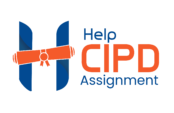7LD02 Leadership and Management Development in Context
- April 28, 2022
- Posted by: admin
- Category: CIPD Level 7

Leadership and management development aims to enable the organization’s future governance and stewardship. This course examines the distinctions between leaders and managers and how these roles differ in different situations. The unit examines a wide range of development interventions to ensure their efficacy and how to use learning analytics to collect reliable measures of organizational performance. This course emphasizes the need to understand leadership and management development complexities in a global environment.
What You Will Learn
You will analyze the differences between leadership and management in several scenarios as a learner of this course, evaluating the roles of leaders and managers and their usual knowledge, skills, and behaviours. You’ll also critically examine the benefits of strategic methods to leadership and management development, which will help you better comprehend the dynamic context in which leadership and management development occurs. Understanding of how learning requirements analysis influences programme design decisions and learning interventions and the need for continuing professional development for leaders and managers will be created. As part of your studies, you will compare metrics and evaluation models and how they can be applied, as well as the role of data and learning analytics in linking leadership outcomes. This will help you better understand the dynamic environment in which leadership and management development occur. Finally, you’ll learn how the globalization of leadership and management influences cultural and geographical borders and the challenges that micro multinationals and SMEs confront when operating abroad.
This Unit is Suitable for Persons Who
| This unit is required for the following individuals: | • Those who work in an organization are responsible for executing human resource policy. • Have completed the CIPD Foundation Diploma in Human Resource Practice and want to pursue a career in human resource management. • Have worked in the field for a while but don’t have any professional human resource qualifications. • Are you a senior people practitioner looking to expand and deepen your ability, knowledge, and abilities to have a greater effect on strategy, policy, and people? • They want to further their careers in human resources (HR) and learning and development (L&D) management by gaining a professional qualification. • A desire to gain more autonomy, influence, and judgment to strategically lead and drive organizations and their employees. |
Learning Outcomes
| Learners should be able to achieve the following four primary learning outcomes after finishing this unit. These results are then divided into several sub-categories. They will be able to: | • Understand management and leadership within a larger organizational, social, political, and cultural framework due to the learning outcomes. (One of the learning outcomes) • Recognize the distinctions among a variety of leadership and management development interventions. (Learning outcomes number two) • Recognize the outcomes of management and leadership development programmes. (There are three learning outcomes.) • Recognize how international managers and leaders evolve to perform in a global environment. (Learning Objective 4) |
What are the Entry Requirements?
For an expert level qualification, the unit contains several formal criteria that vary by institution, while others apply to all students enrolled in the unit. Most universities have developed diagnostic methods to guarantee that candidates have the necessary qualifications to study for leadership and management development in a real-world setting (7LD02). For example, some colleges require candidates to be at least 18 years old on or before July 1st of the academic year they wish to enrol. Furthermore, before enrolling students in a course, most colleges conduct interviews with them.
In most cases, institutions require candidates to have a basic command of the English language before enrolling in a course. Some, for example, demand candidates to have a C/4 or higher in English at GCSE. On the other hand, institutions follow the CIPD guideline to seek counselling before enrolling in the programme if English is not their first language. Some colleges need IELTS 6.5/ESOL Level 2 or an equivalent for students who speak English as a second language. On the other hand, other institutions prefer to analyze circumstances on an individual basis.
Most, if not all, institutions need candidates to have a bachelor’s degree, CIPD level 5 certifications, and to be engaged in a human resource capacity currently or previously. Others require a Level 6 Bachelor’s degree (Hons) in a human resource-related discipline from applicants. However, candidates must have extensive experience in human resources as a minimum requirement. Significant strategic human resource experience may be accepted in place of a degree topic for examination in extreme situations. These diagnostics ensure that students can finish and comprehend the Units and the literacy requirements.
How We Can Help
Writing assignments are notorious for taking an excessive amount of time to complete. It is our responsibility to relieve you of your academic responsibilities. We provide writing support to students who need help with “Leadership and management development in context (7LD02)” papers. We’ve devised a writing platform based on intellectual capacity with you in mind—a collaborative workstation with great minds to help you avoid study headaches, stress, and all-nighters. We’re a group of highly skilled writers, editors, and proofreaders whose main purpose is to make great work as simple as possible by removing the stress of performing the tedious work yourself. Our team consists of highly qualified specialists who ensure that our clients’ research and projects receive the highest possible grade. We never say no to a customer’s request, no matter how urgent or complicated it is. Plagiarism is not tolerated here, and every job is completed from scratch. Before sending a paper to you, we scan it for originality using licenced software to ensure that it is 100 per cent unique. Any paper can be completed by one of our highly competent writers, and you can be assured that it will be well-researched. We place a premium on the amount of time and effort spent on the research for the paper to ensure that it is thorough and based on credible sources.
Furthermore, the work must be thoroughly reviewed to correspond to all marking rubrics and reference styles. Many students are concerned about the security of their personal information; however, do not worry; our Privacy Policy ensures that our writing service is safe, secure, and private. Our major purpose is to ensure that every customer we collaborate with achieves academic success.
Reference
For students interested in pursuing this course, there are a variety of publications available. Here are a few examples that institutions across the globe extensively utilize.
Adair, J. E. (2019). Develop your leadership skills: Fast, effective ways to become a leader people want to follow. Kogan Page Ltd.
Akrofi, S. (2018). Value Creation Through Executive Development. Routledge.
Barmeyer, C., Bausch, M., & Moncayo, D. (2019). Cross-cultural management research: Topics, paradigms, and methods—A journal-based longitudinal analysis between 2001 and 2018. International Journal of Cross-Cultural Management, 19(2), 218-244.
Colby, S., & Salinas, T. M. (2021). Intentional Leadership Development Programming for Advancing Women Leaders. The Journal of Faculty Development, 35(1), 27-33.
Flinn, K. (2018). Leadership development: A complexity approach. Routledge.
Koponen, E. A. (2019). Leadership factors for a successful lean implementation in manufacturing SMEs.
LEADERS, D. T. (2018). LEADERSHIP, VISION, & REFLECTION.
Louis, D., & Diochon, P. F. (2019). Complex situations in coaching: A critical case-based approach. Routledge.
Longenecker, C., & Insch, G. S. (2018). Senior leaders’ strategic role in leadership development. Strategic HR Review.
Szczepańska-Woszczyna, K. (2020). Management Theory, Innovation, and Organisation: A Model of Managerial Competencies. Routledge.
Related Articles


